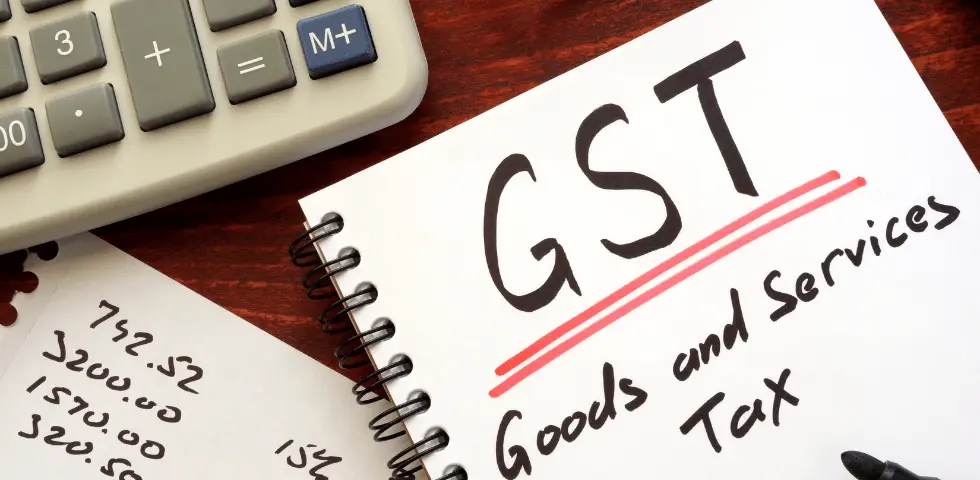The Goods and Services Tax (GST) is an indirect tax system that has been implemented in India since July 2017. GST has replaced multiple indirect taxes such as service tax, VAT, and excise duty. GST is levied on the supply of goods and services, and it is a destination-based tax system. GST has had a significant impact on the real estate sector in India, and it is important for real estate buyers and sellers to understand how GST affects their transactions. In this article, we will discuss GST on real estate and its implications.

What is GST on Real Estate?
GST on real estate is a tax that is levied on the purchase of under-construction properties in India. The GST rate on real estate is 5% for residential properties and 12% for commercial properties. GST is levied on the value of the property, which includes the cost of construction, land cost, and other charges such as legal fees, stamp duty, and registration charges.
Impact of GST on Real Estate Buyers
GST has had a significant impact on real estate buyers in India. Prior to GST, buyers had to pay multiple taxes such as service tax, VAT, and stamp duty. GST has replaced these taxes with a single tax, making the process more streamlined.
However, the GST rate of 5% on residential properties has increased the cost of buying an under-construction property. Buyers need to factor in the GST when calculating the total cost of the property, which can make it more expensive than buying a ready-to-move-in property. Moreover, buyers can only claim input tax credit on the GST paid if the developer is registered under GST and has passed on the benefit to the buyer.
Impact of GST on Real Estate Developers
For real estate developers, GST has made compliance easier and has reduced the number of taxes that they have to pay. The input tax credit available under GST has reduced the cost of construction for developers. However, the GST rate of 12% on commercial properties has increased the cost of construction, which can affect the pricing of commercial properties.
Moreover, under GST, developers can only claim input tax credit if they are registered under GST and have all the necessary documents in place. This has led to a reduction in the number of unregistered developers, making the real estate sector more organized.
Impact of GST on Real Estate Industry
GST has had a significant impact on the real estate industry in India. The implementation of GST has made the real estate buying process more transparent and has reduced the number of taxes that buyers have to pay. Moreover, GST has led to a reduction in the number of unregistered developers, making the real estate sector more organized.
However, the GST rate of 5% on residential properties has increased the cost of buying an under-construction property, which can affect the affordability of real estate for buyers. The real estate industry in India has been facing a slowdown in recent years, and the implementation of GST has added to the challenges faced by the industry.
Conclusion
In conclusion, GST has had a significant impact on the real estate sector in India. While GST has made compliance easier for developers and has reduced the number of taxes that buyers have to pay, the GST rate on real estate has increased the cost of buying an under-construction property. It is important for real estate buyers and sellers to understand the implications of GST on their transactions and factor in the GST when calculating the total cost of the property.
Overall, GST has made the real estate sector in India more transparent and organized, and it is expected to drive growth in the sector in the years to come. However, there is a need for further reforms to address the challenges faced by the real estate industry in India.
FAQ’s on GST on Real Estate
What is GST on real estate?
GST on real estate is a tax that is levied on the purchase of under-construction properties in India. The GST rate on real estate is 5% for residential properties and 12% for commercial properties.
How is GST calculated on real estate?
GST is calculated on the value of the property, which includes the cost of construction, land cost, and other charges such as legal fees, stamp duty, and registration charges. The GST rate of 5% is applied to the value of residential properties, while the GST rate of 12% is applied to the value of commercial properties.
Is GST applicable on ready-to-move-in properties?
No, GST is not applicable on ready-to-move-in properties, as they are considered as completed properties and do not come under the purview of GST.
Can buyers claim input tax credit on GST paid for real estate?
Buyers can claim input tax credit on the GST paid if the developer is registered under GST and has passed on the benefit to the buyer. However, buyers cannot claim input tax credit on the GST paid for the purchase of commercial properties.
How has GST impacted the real estate industry?
The implementation of GST has made the real estate buying process more transparent and has reduced the number of taxes that buyers have to pay. However, the GST rate of 5% on residential properties has increased the cost of buying an under-construction property, which can affect the affordability of real estate for buyers. The real estate industry in India has been facing a slowdown in recent years, and the implementation of GST has added to the challenges faced by the industry.
Can developers claim input tax credit on GST paid for real estate?
Developers can claim input tax credit on the GST paid if they are registered under GST and have all the necessary documents in place. This has led to a reduction in the number of unregistered developers, making the real estate sector more organized.
Is GST applicable on resale of real estate properties?
No, GST is not applicable on the resale of real estate properties, as they are considered as completed properties and do not come under the purview of GST.
How can buyers calculate the total cost of the property including GST?
Buyers can calculate the total cost of the property including GST by adding the cost of construction, land cost, and other charges such as legal fees, stamp duty, and registration charges, and then applying the applicable GST rate.
